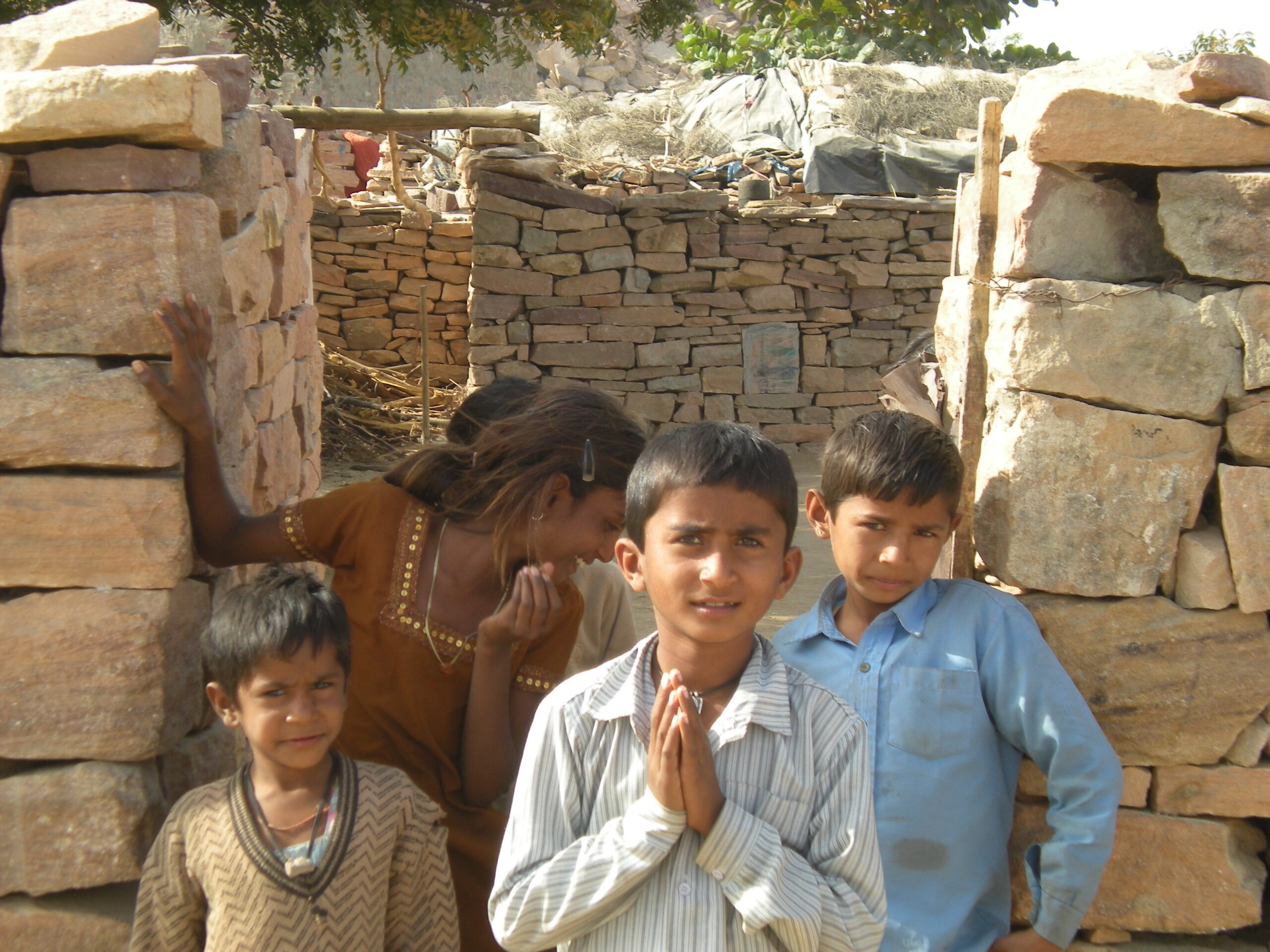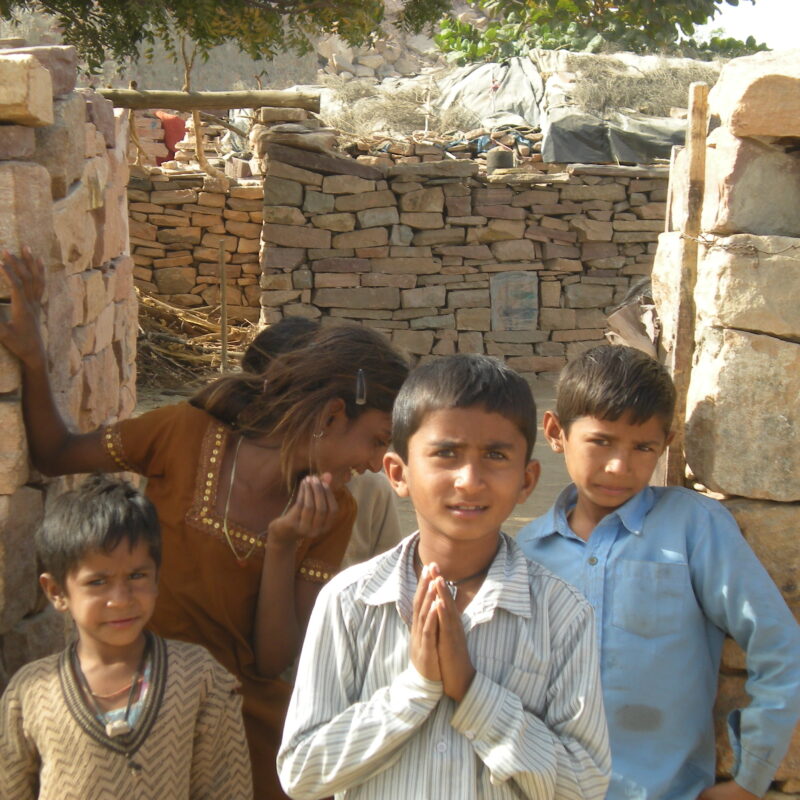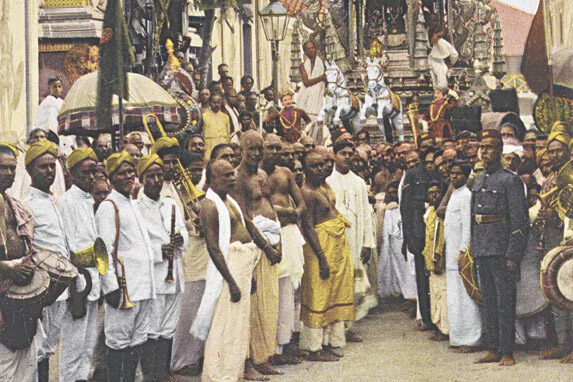
The plight of Pakistani Hindu refugees is a little-known human rights crisis in India. This interview is part two of a two-part interview with Hindu Singh Sodha on the contours of these challenges and possible solutions by our Human Rights Director Deepali Kulkarni. Click here for part one.
Mr. Hindu Singh Sodha is an activist for Pakistani minorities living in India. As a Pakistani refugee, he gained Indian citizenship while attending law school in Jodhpur, Rajasthan in 1977, and has been advocating for other Pakistani refugees ever since. He is the founder and director of Universal Just Action Society (UJAS) and has also founded Pak Visthapit Sangh and Seemant Lok Sangathan– two community-based organizations in Rajasthan. He advocates for all Pakistani minorities, working primarily with Hindu-Pakistanis living in settlements around the India-Pakistan border and throughout India, mainly Rajasthan, Gujarat, Haryana, Delhi, and Madhya Pradesh, Chhattisgarh, Punjab, UP and Maharashtra.
What were the serious periods of migration of Hindu refugees from Pakistan since 1947?
1965: 10,000 people migrated from Pakistan due to Pakistan being created as an Islamic state and the minorities were getting an insecure feeling. There were so many kinds of persecution and discrimination.
1971: Because of the Bangladesh Liberation War 90,000 migrated.
During the 1990s: The Pakistan government was not taking care of them. The geopolitical situation was Russia supported Afghanistan. They were fighting against the Taliban and the US was supporting the Taliban at that time against Russia. Taliban’s outfits were very active in Pakistan. These were the things that strengthened the fundamentalist forces in Pakistan. This was the golden era for the extremist forces to spread throughout Pakistan. The government of Pakistan and fundamentalist forces were on the same page.
Because of the Ram Mandir and Babri Mosque attack around 20000 people who left their home had come to Rajasthan. In some places in Pakistan very many Hindus were killed. Numerous temples were reportedly desecrated and demolished. Incidents were also reported that some Hindu women and girls were harassed and even raped. That time they started migrating but the situation had changed. Before the border was porous and people were coming but then the whole border was fenced. This is when they needed to carry a passport by the government of Pakistan and a visa by the Indian government embassy in Islamabad. Other than Gujarat and Rajasthan, people started going to the states of Madhya Pradesh, Chhattisgarh, Delhi, Haryana, Punjab, Uttar Pradesh, and Maharashtra.
1999 and afterwards: Kargil conflict also created fear among Hindus in Pakistan hence post Kargil incident number of Hindu had to migrate escaping the fear created therein Pakistan. It is estimated that around 7500 people entered Rajasthan.
Incident of Rinkle Kumari abduction case in 2012 and till date: Though the incidents, of abducting and forcibly converting Hindu minor girls to Islam and marrying them with Muslim men, started in first decade of this millennia which in second decade campaigned in very organized way. Human Rights Commission of Pakistan confirms that annually around 1000 Hindu girls are to be abducted, forcibly converted to Islam and married to Muslim men. This episode instigated wave of fear among Hindus after case of Rinkle Kumari in 2012 whose parents dared to save her and approached to even Supreme Court of Pakistan. Rinkle Kumari in her first hearing before then Chief Justice of Pakistan confessed that she wanted to go with her parents but she was sent to a shelter home instead of handing over to her parents. The second hearing was arranged ‘in-camera’ hence no one knows what Rinkle said and it was told publicly that Rinkle Kumari wanted to go with her Husband. Thereafter there is no clue regarding the whereabouts of Rinkle Kumari. This incident played havoc among the Hindu parents of minor daughters hence after the incident of Rinkle Kumari till date around 25000 people have migrated to Rajasthan only.
What are the challenges that Pakistani Hindu refugees are facing now in India?
Though many people think that because of the Modi government Hindus from neighboring Muslim countries have been given open window to come India, continue stay and get Indian citizenship now they are able to stay here. However, the fact is that But no because of the Indian Citizenship Act 1955 gives way to these people to come to India hence this is the reason so that they were able to get citizenship since long back. From 1971 people who migrated until 1977, they were staying in the refugee camps only. When the government changed and from time to time different governments were treating them in a different manner but on every coming days the citizenship granting process on ground is surfacing as very tedious and difficult. Law says it is officially 7 or 12 years to get citizenship with the Indian Citizenship Act of 1955, but sometimes it takes 20 years or more in some cases. Further to the hardships of getting citizenship, accessing to the Education, is an issue and health are yet major issues is an issue for those who are refugees. For example, a pregnant woman when she goes for the sonography and they are required to show will ask for the Indian ID which many of the refugees don’t have until get Indian citizenship. Accessing education is also costly and difficult for migrant children in the given policy introduced for this group. Generally there is no clear cut legal regime for refugees which creates a range of issues for migrants.
It is also fact that governmental authorities from time to time introduce some regime aimed at easing the trouble of migrants but it has always been found that at ground the implementation of legal regime creates hurdles in a way so that migrants ultimately remain deprived of getting optimum benefits of the given legal regime or any introduced scheme for this group. In Rajasthan, they have the government has now launched a scheme where 1700 people will likely be getting plots of land but again the rates are a bit high thus many poor migrants cannot afford to get benefit of the scheme. They have reserved, they have launched the scheme. But very few have applied. Less than 5% have applied, because of the rate. If the rate is lowered, it will be really ideal. In 2018 they have made this scheme. However, we will still fight for the lowering of the rates.
Would the Citizenship Amendment Act help alleviate some of the challenges that Pakistani Hindu refugees are facing in India?
Two things are there when we talk about the Citizenship Amendment Act.
Citizenship Amendment Act 2019 aims to make the citizenship process easy for the minority migrant communities, from three neighboring specific countries including Pakistan, who are either stuck in India since many decades without getting Indian citizenship or trapped back in the above-mentioned neighboring countries. Thus the central theme of CAA is to grant India citizenship to all those minority migrants from Pakistan, Bangladesh and Afghanistan, who arrived in India by 31st December 2014 and have either no or expired travel documents. Moreover, it also lessens the requirement of a stay period of up to 6 years, for those migrants who arrive India on legal documents even after 31st December 2014. However, it must be remembered that even under existing citizenship Act 1955 the minority migrants from Pakistan are getting Indian citizenship either after 7 years of stay (whose either parent is born in undivided India) or 12 years of stay for others. Moreover as per details of the CAA it is also expected that the process of granting citizenship will be less tedious and easy than that of existing law in practice hence it will certainly be beneficial for the migrants if it really comes into force which currently it is not for long due to not accomplishing the rules making process hence so far the government has sought extension for sixth time on only this 9th January 2022.
First, people who haven’t gotten citizenship because of formality related issues will benefit if they came before 31 December 2014. The passport on which they are coming, they will not have to renew that if that is there. The formalities on which the application is denied or delayed, that will be over. The process gets complicated because of the formalities. Automatically they will not have any excuse to linger on the case. Whether your documentation is legitimized. Now the Act will be working as a way to deal with these people. That’s the first thing.
The second thing is that all of these people who have stayed for six years maybe category Persons of Indian Origin or minorities from three neighboring countries. All these things will make it easy for these people to get Indian citizenship, if you implement the CAA in the true spirit. This is meant only for the persecuted minority for these three countries. We still have apprehensions. This was passed two years ago and we have a doubt if it will be truly implemented as they have passed it.
Note: This interview took place in December, 2021. At the time, the Citizenship Amendment Act was slated to take effect on January 9th, 2022. As of March 2022, it has yet to be implemented. This interview has been edited for brevity and clarity.







































